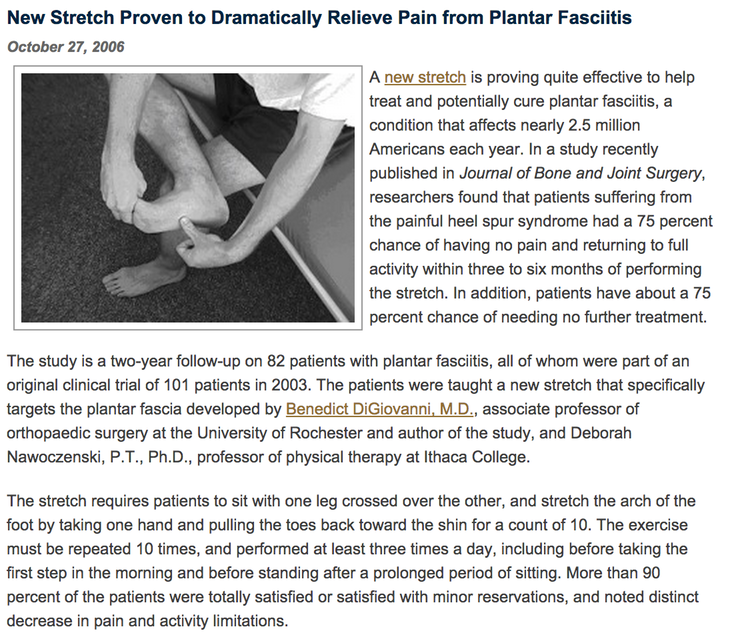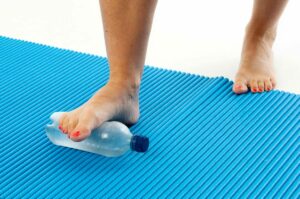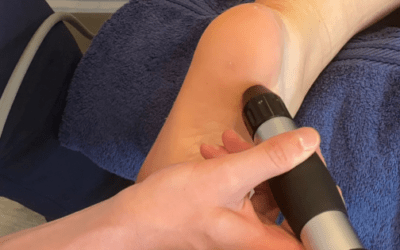Common Running Injuries – Plantar fasciitis
So here is blog number two of our running series, we have already covered ITBS (iliotibial band syndrome).
We see a lot of patients suffering from plantar fasciitis in our physiotherapy clinics which are based in Havant and Rowlands Castle in Hampshire. Today we will share with you some self help exercises for plantar fasciitis (heel/foot pain).
Here is a testimonial from one of our clients who had plantar fasciitis:
What is plantar fasciitis?
Plantar fasciitis is the third most common injury in runners and approximately 10% of people have plantar fasciitis at some point during their lifetime. It is a pain in the heel and underside of the foot.
The plantarfascia itself is a tough band of fibrous tissue that extends from the heel bone to the toes. It supports the arch of your foot and takes a lot of load during walking and running. Plantar fasciitis is an overuse injury to the fascial sheath on the sole of the foot.
Cause of Plantar fasciitis
- When there is an increased load placed on the plantar fascia by running, walking, playing tennis or by a patient’s biomechanics.
- Tight calf muscles
- Poor footwear
- Poor glutes control
- Calf muscle weakness
What are the symptoms of Plantar fasciitis?
People with plantar fasciitis may have a number of symptoms including:
- Pain on the bottom of your foot, sometimes going into your heel.
- Usually the first few steps in the morning are painful but this gradually settles as you continue walking.
- Walking barefoot, on your toes, going up stairs and running all tend to aggravate the pain.
Treatment
There are lots of different treatment options from taping, to sports massage to release off tight calf muscles and plantarfascia, ankle joint mobilisation, strengthening exercises, stretches, acupuncture and ultrasound.
Exercises for Plantar fasciitis
Please be aware of your body and take advice from your GP before exercising or send an email to Physio-logical for advice and guidance.
Heel Raise
Plantar Fascia Stretch
 |
|
Frozen Can Roll
If any of the above sounds familiar or if you suffer from plantar fasciitis then we can help you. Our team regularly see patients with a wide range of foot and heel pain symptoms. We also offer Shockwave Therapy which is also a good treatment for Plantar fasciitis when combined with exercises.
Call our clinic today on 023 9435 0270 or book online to find out more about how our team of experienced Physiotherapists and Sports Therapists can help.







